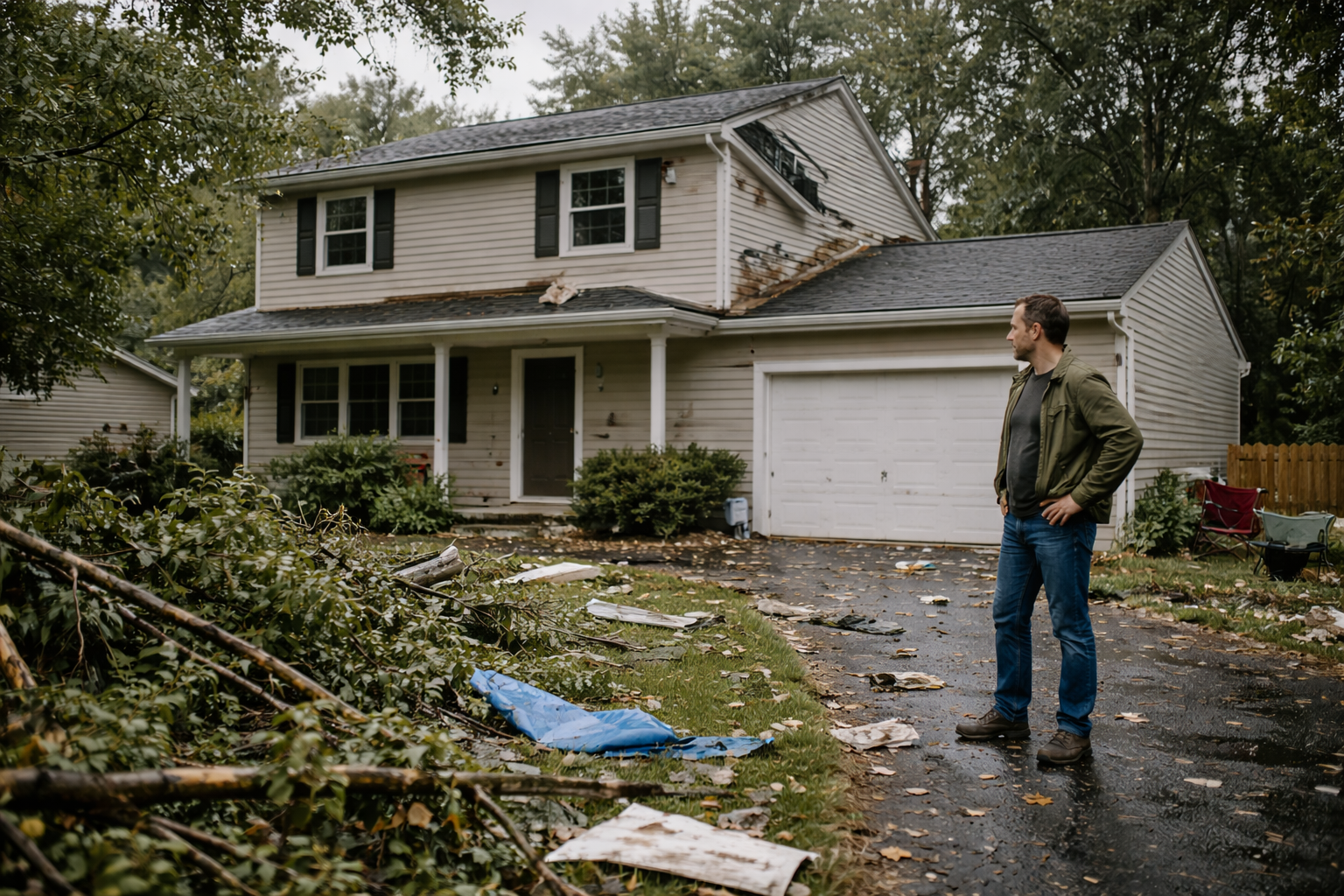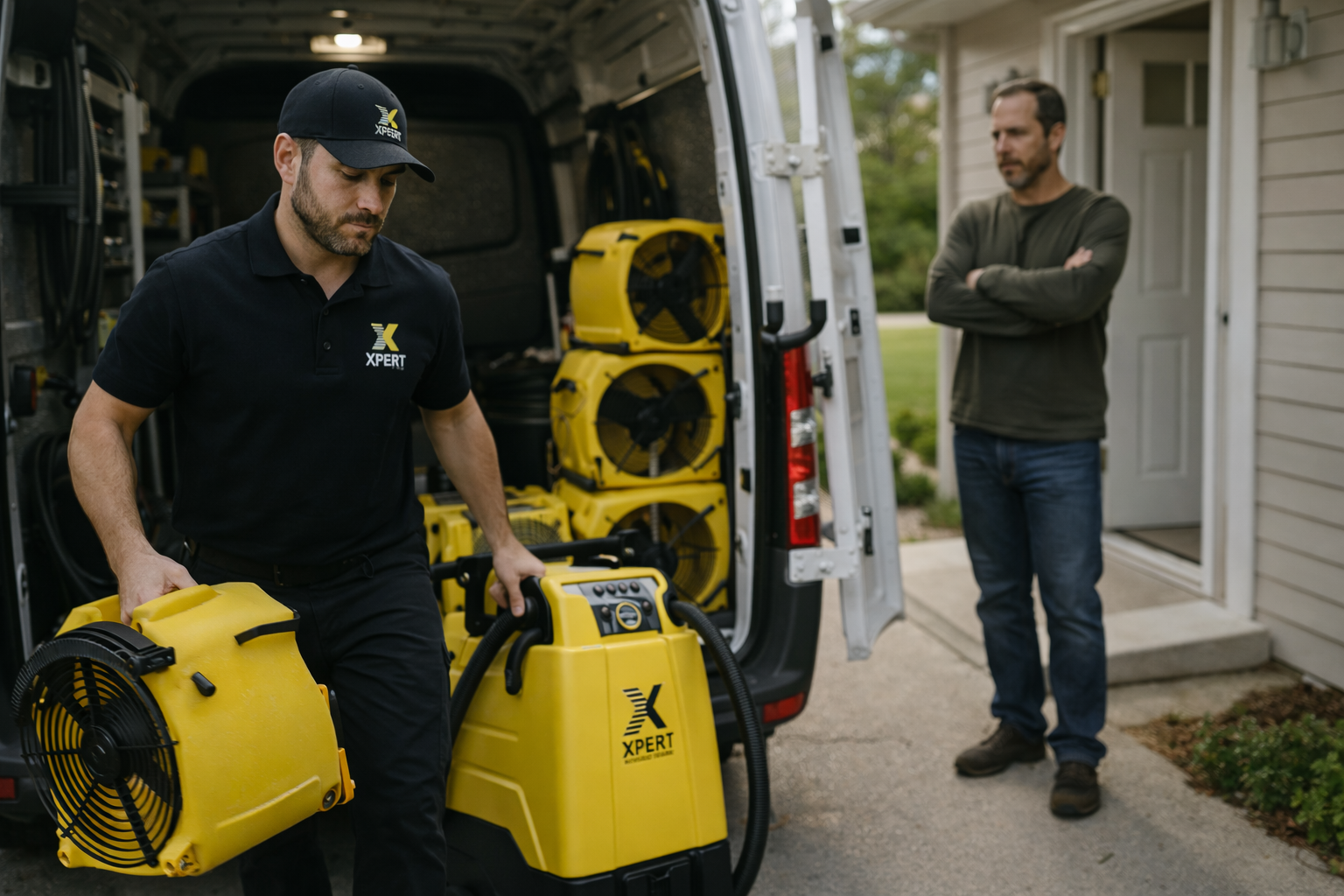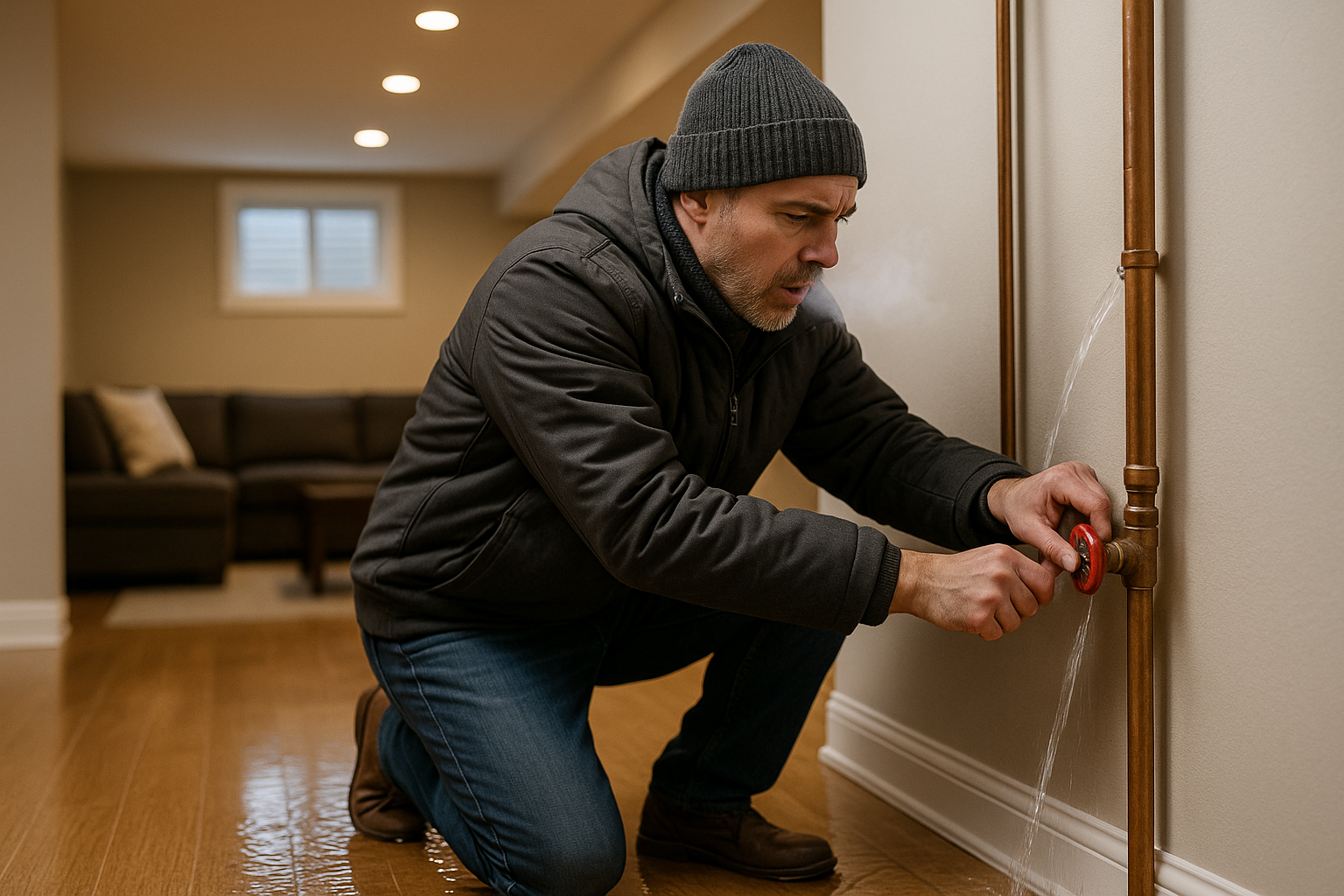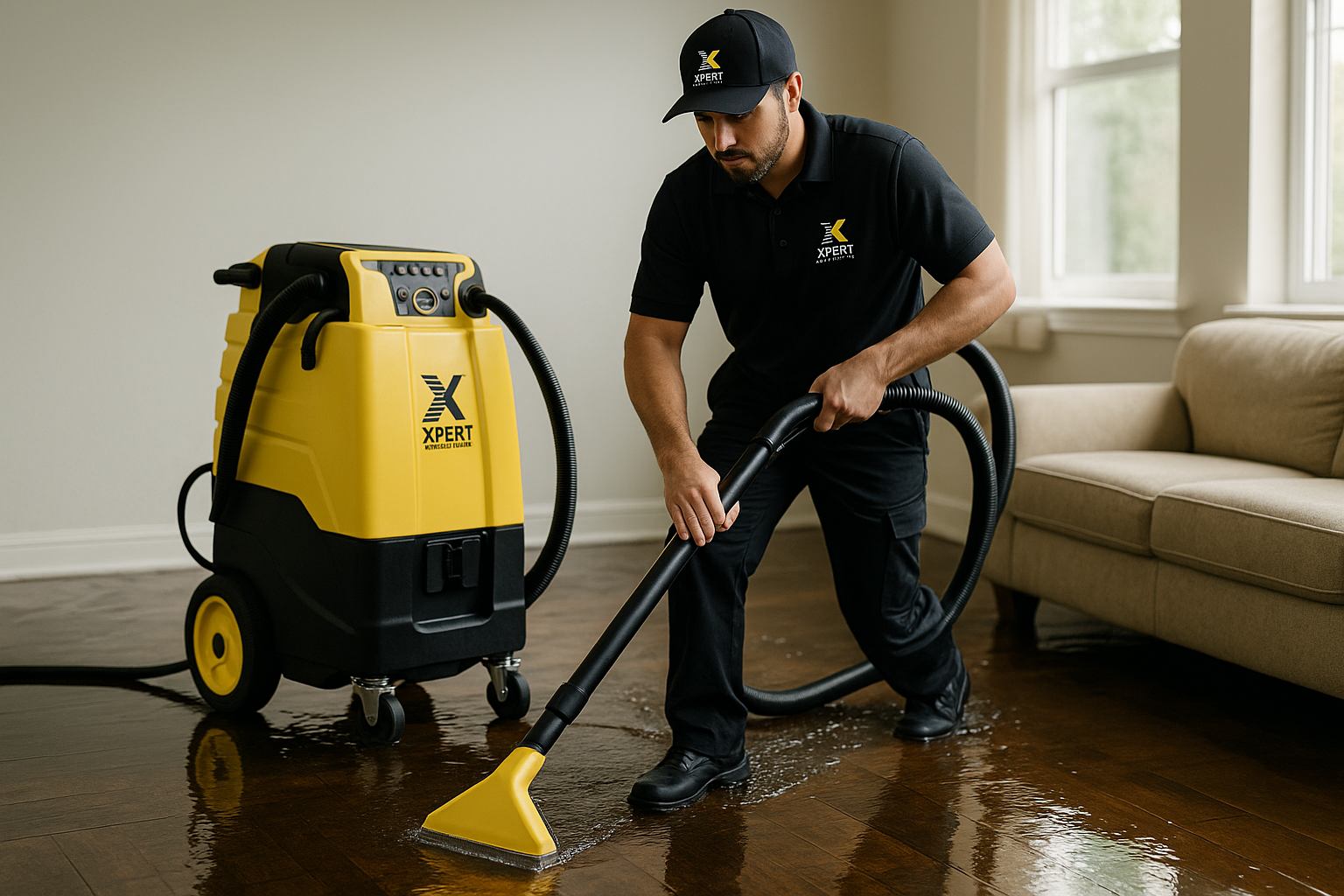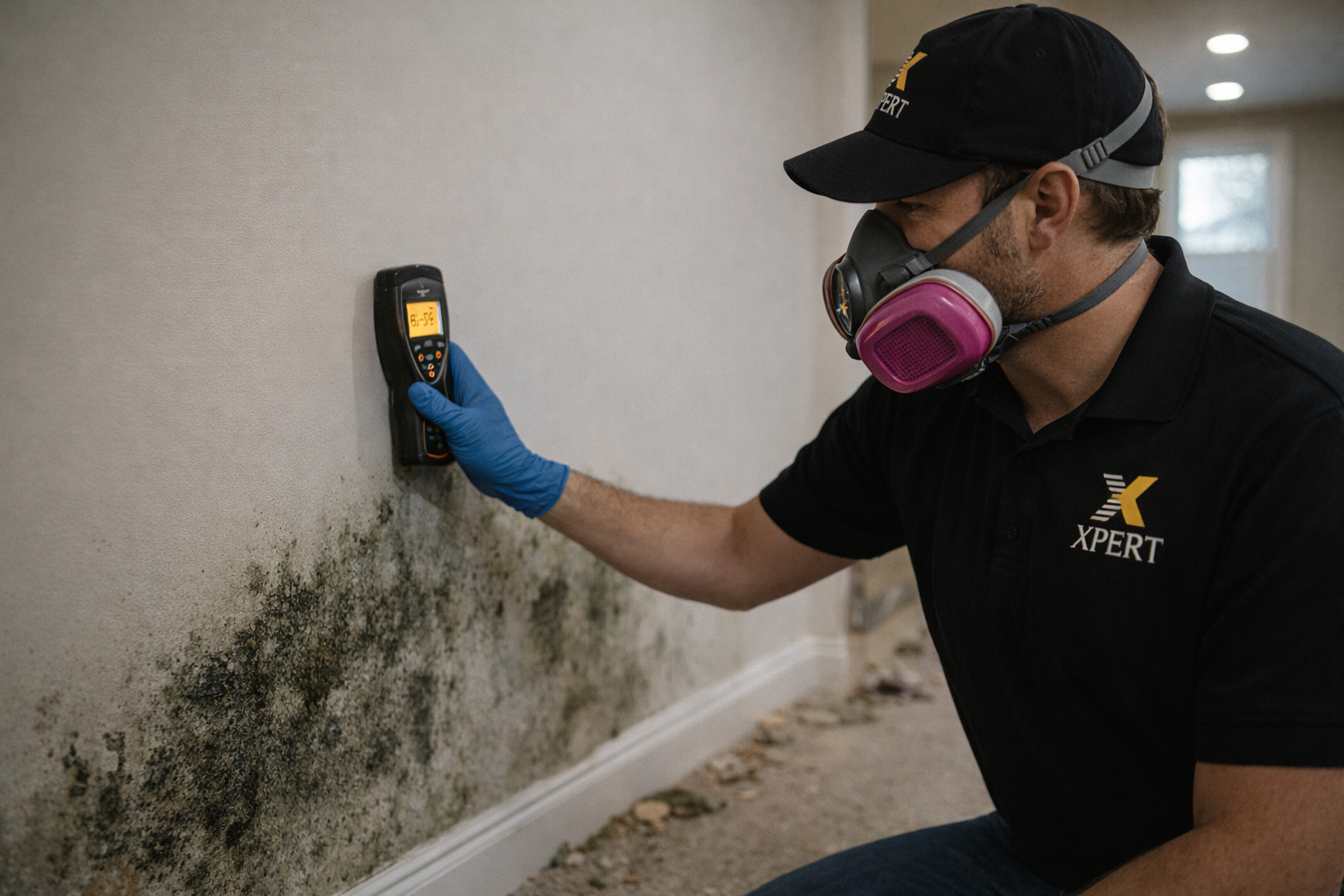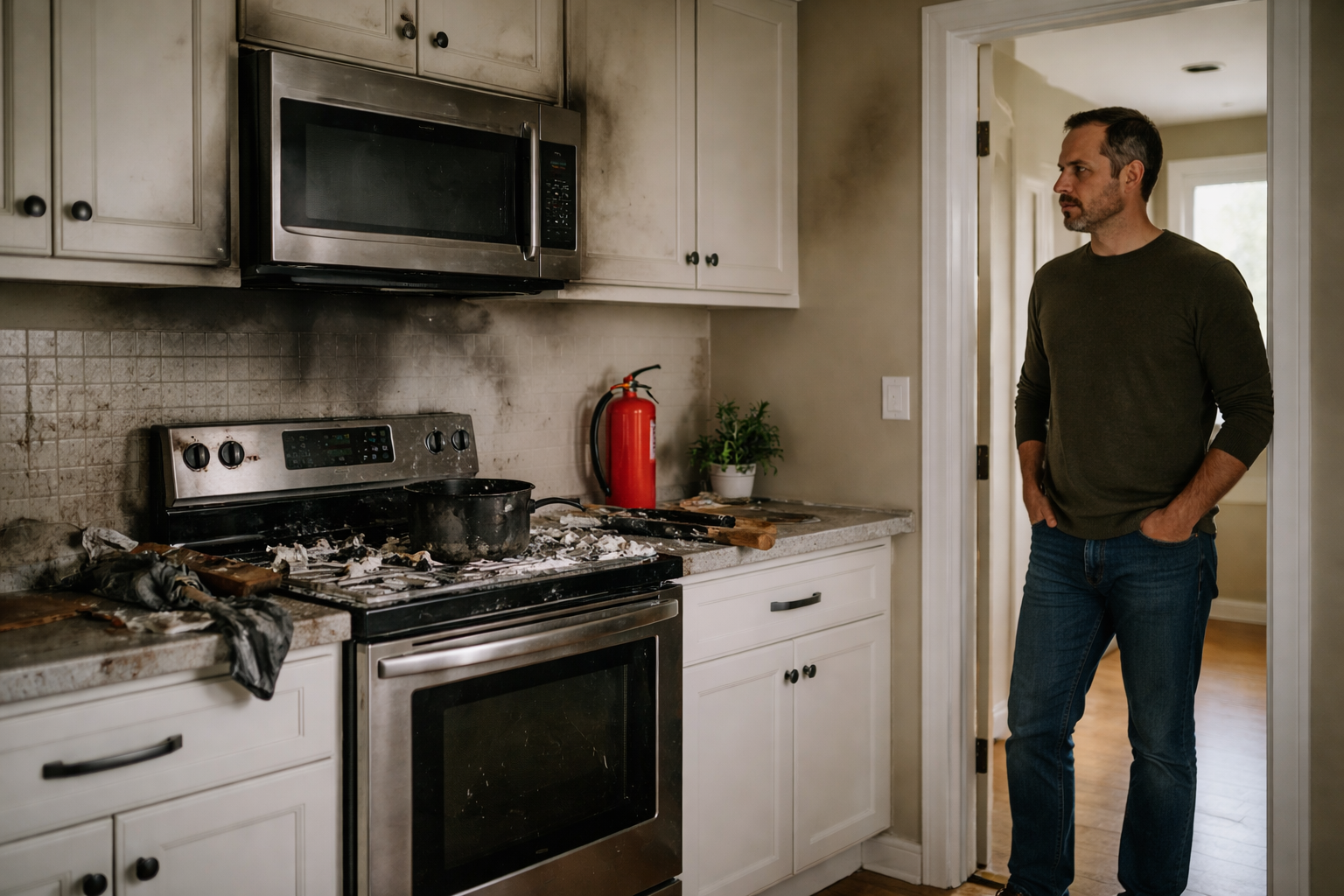When Disaster Strikes: The Real Story Behind Fire Damage Recovery in DuPage County
What really happens after a fire and how families start over

It always starts the same way, a siren in the distance, the glare of red lights on wet pavement, neighbors gathering on sidewalks in pajamas, whispering as smoke drifts through the neighborhood. For one family, a normal evening just turned into the kind of night you remember forever. But if you ask anyone who’s lived through it, the true story of a house fire doesn’t end when the flames go out. That’s just the opening chapter.
Here in DuPage County, we’ve seen it too many times. A family stands shivering under the streetlights while firefighters do their work. There’s relief when everyone’s safe, but then reality sets in. The house is still standing, but what happens next? For most homeowners, what follows is a marathon of confusion, stress, and more than a few surprises. Fire damage restoration isn’t just about cleaning up ashes. It’s about rebuilding lives. And the process isn’t nearly as simple as people hope.
What Really Happens After the Fire Trucks Leave
You might think the worst is over when the flames are out, but the aftermath is its own kind of chaos. The first thing most homeowners notice is the smell, an acrid, bitter smoke that clings to everything, seeps into the walls, and refuses to leave. Even days later, after the fire is a memory, every shirt, towel, and piece of furniture in the place smells like a campfire that got way out of hand.
But it’s not just about the smoke. Firefighters do what they must, drench the flames with thousands of gallons of water, break down doors, punch holes in the roof. It’s the right thing to do. But when you’re staring at soggy drywall, warped floorboards, and what used to be a living room that now looks like a forgotten basement, you realize: water damage can be just as cruel as fire.
Then there’s the paperwork. Insurance adjusters, city inspectors, contractors, and a parade of well-meaning relatives all have their own opinions. It’s easy to feel like you’re in over your head. Suddenly, you’re supposed to become an expert in policy language, structural engineering, and mold prevention, basically overnight.
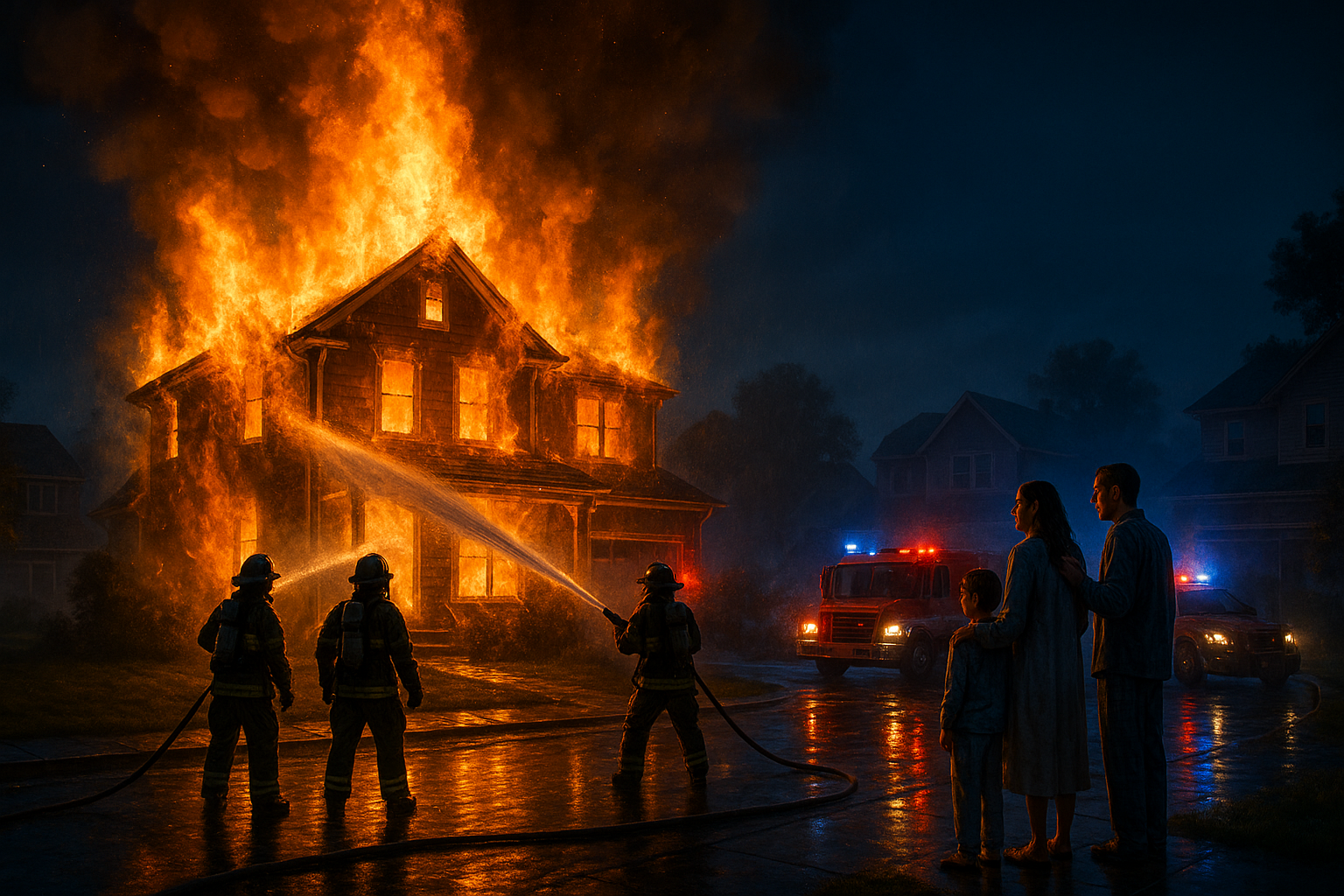
The Emotional Whiplash of Loss
People love to talk about “stuff” being replaceable, but if you’ve ever watched firefighters carry out a soaked photo album or a half-melted keepsake, you know it’s not that simple. That singed baby blanket, those scrapbooks, the old guitar in the corner, these are more than things. They’re pieces of your family’s story.
And even if insurance will pay for a new couch or a fresh paint job, there’s a grief that sneaks up on you. Every smell, every stained wall, every “total loss” sticker feels like a personal wound. Families often find themselves arguing more, sleeping less, and carrying a kind of invisible anxiety for months after the fire.
You’ll get a lot of advice. “Just be grateful everyone’s okay.” “It’s just a house.” Those words are true, but they’re never enough. The hardest part is the slow realization that recovery isn’t about getting your old life back, it’s about building something new from the pieces.
The Unseen Enemies: Soot, Water, and Time
Here’s something most people don’t know until it’s too late: soot doesn’t just stain, it invades. It finds its way into electrical outlets, behind baseboards, inside HVAC systems. Left alone, it corrodes metal, eats away at fabrics, and causes permanent damage that can double or triple repair costs. That’s why professional fire cleanup is not a luxury, it’s a necessity.
Water, meanwhile, lurks in the shadows. Maybe you think you’ve mopped up the worst of it. But water seeps under floors, inside walls, into crawlspaces. It’s invisible, silent, and it’s already plotting its next move, mold. Within days, if not treated, mold can start to grow in the places you can’t see or smell until it’s too late.
And then there’s time. Every hour you wait is another hour that odors set, stains harden, and small problems become big ones. That’s why the first 24–48 hours after a fire are critical for limiting the long-term damage. The homeowners who act quickly, and get the right help, usually have a far smoother recovery than those who wait.
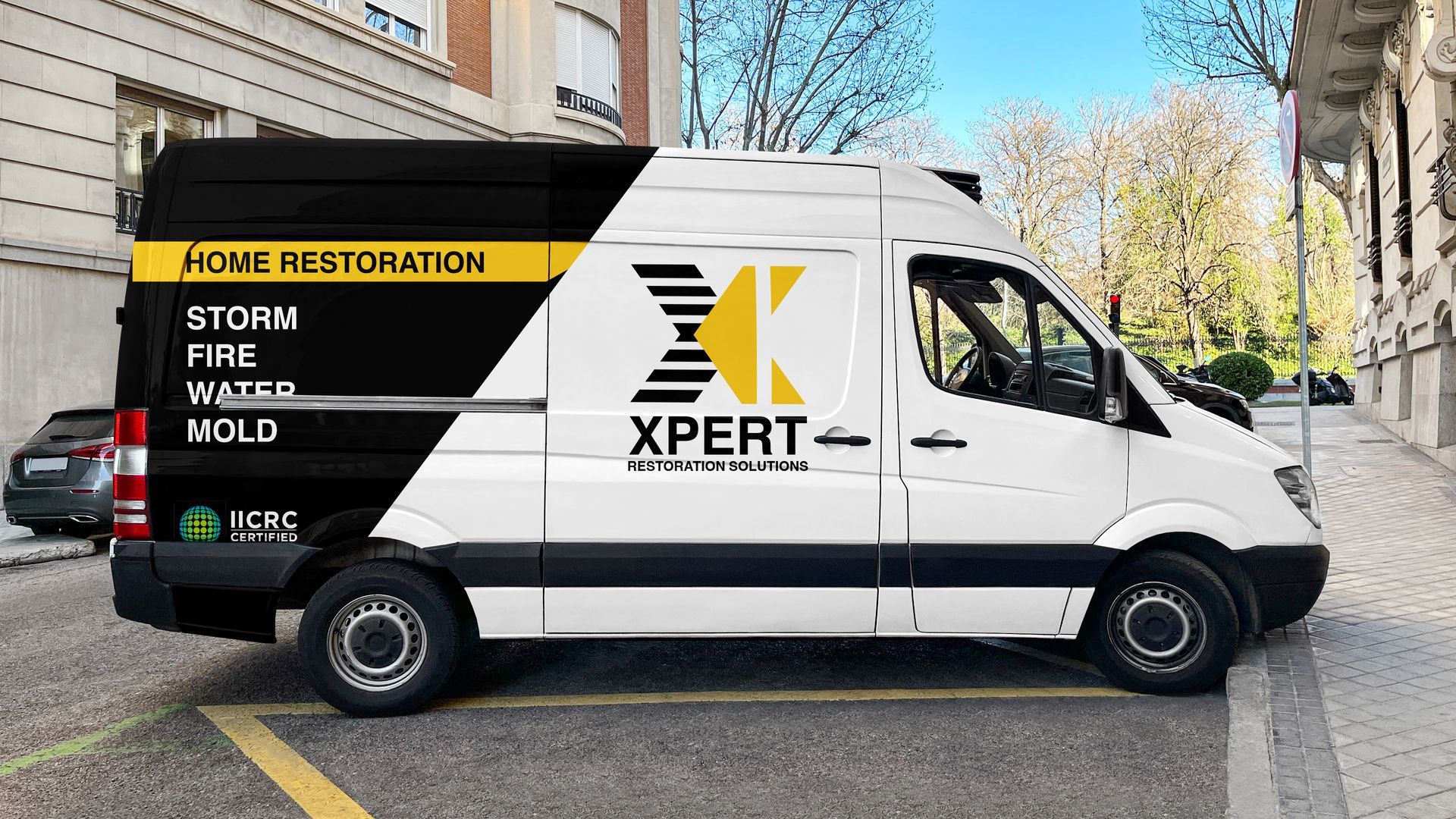
A Day in the Life of a Restoration Crew
For restoration professionals in DuPage County, every job is a little different, but some things are universal. We get the call, sometimes in the middle of the night. “My house just burned. What do I do?” The first step is always the same: get eyes on the property, secure the scene, and listen to the family. Half the job is technical skill, but the other half is empathy, just being there, calm and confident, when people are at their worst.
When we arrive, the first order of business is usually “board up and tarping.” Broken windows and open roofs can turn a bad situation into a disaster if it rains or if thieves get the idea to help themselves. Then we start the assessment, what can be saved, what’s a loss, and where’s the hidden damage lurking?
You’d be amazed at what can be restored. We’ve seen family heirlooms, children’s art projects, and priceless keepsakes come back to life with the right process. But it takes the right tools and the right touch. Industrial vacuums, air scrubbers, and chemical sponges are just the start. Every surface, every air duct, every inch of the house needs to be cleaned and checked, sometimes more than once.
It’s not glamorous work. You’ll come home with soot under your nails, your clothes smelling like burnt wood. But there’s real satisfaction in seeing a devastated family finally walk back into their home, safe and clean, weeks or months later.
The Insurance Maze And How to Survive It
If you want to see a normally calm adult lose their mind, just hand them a stack of insurance forms after a house fire. Policies are full of fine print, deductibles, and “exclusions” you never noticed before. One of the biggest mistakes people make is assuming the insurance company will just “take care of everything.” They won’t. Not unless you push for it.
Here’s a tip: document everything. Take photos of every room, every damaged item, every receipt. Don’t throw anything away until your adjuster has seen it. The more evidence you provide, the smoother your claim will go. Restoration companies like Xpert Restoration Solutions can help here, we know what adjusters need to see, what language gets things approved, and how to fight for the maximum payout.
But patience is key. Claims take time, especially after big events when lots of people are affected. Stay organized, keep records, and don’t be afraid to follow up (again and again). Your house is worth fighting for.
Bringing the Community Together
One of the surprising silver linings after a fire is the way a community rallies. Neighbors drop off casseroles, churches send volunteers, friends start GoFundMe pages. We’ve seen entire blocks come together to help a family clean up, rebuild, and find hope. If you’re going through this, don’t be afraid to ask for help or accept it when it’s offered.
The truth is, no one recovers from fire damage alone. It takes a network; family, friends, neighbors, and yes, professionals who know the drill. We’re always amazed by the resilience of people in this area. If you’re reading this and wondering how you’ll get through, just know that you will. It won’t be easy or quick, but every day will get a little better.
Lessons Learned: What Real Homeowners Wish They Knew
Talk to anyone who’s been through a fire, and you’ll hear the same advice:
Don’t go it alone. Don’t wait. Don’t let the insurance company take shortcuts. And whatever you do, get professional help as soon as possible.
It sounds simple, but these steps can save you months of headache and thousands of dollars. Even the most stubborn DIYers end up grateful for the support, because cleaning up after a fire isn’t just about labor, it’s about knowledge. It’s about knowing which materials can be salvaged, how to eliminate hidden hazards, and how to rebuild safely and up to code.
Most of all, they wish someone had told them how emotional the journey would be. Yes, you’ll feel lost, angry, and frustrated. But with time, and the right help, your house can become a home again—sometimes stronger and safer than before.
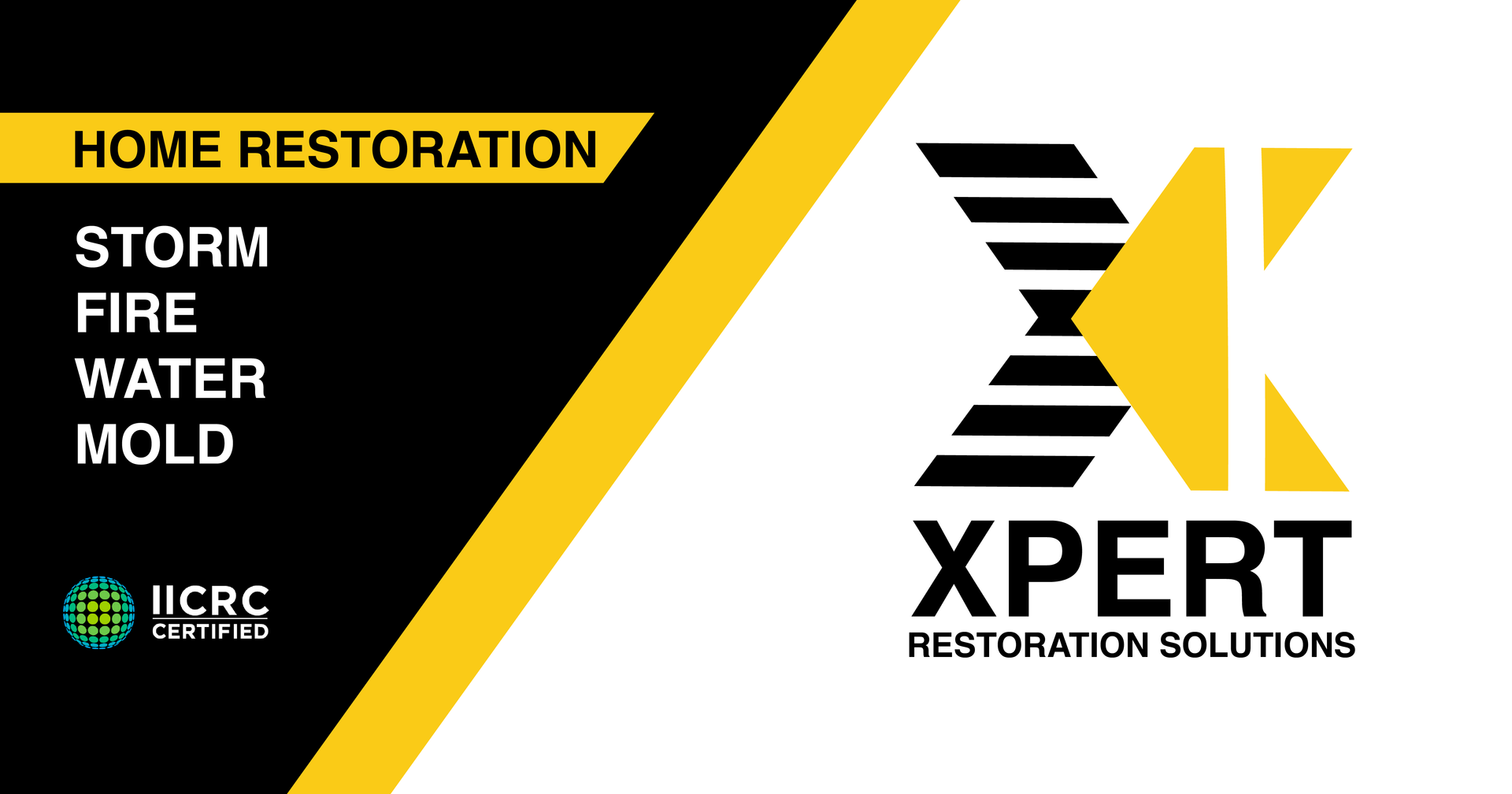
Final Thoughts: Why We Do What We Do
At Xpert Restoration Solutions, we don’t just fix buildings, we restore peace of mind. Every job is personal, every family matters, and every home deserves a new beginning. We know the neighborhoods, we know the challenges, and we know how to get things done right.
If you or someone you know is facing fire damage in DuPage County or the Chicago suburbs, don’t wait for things to get worse. Reach out, get advice, and take action. Whether it’s boarding up a window at midnight or walking a family through their first insurance claim, we’re here for you, every step of the way.
Need Help Now?
Call (331) 245-5108 or contact us online for immediate fire damage restoration, honest answers, and the kind of local support you can actually count on.

